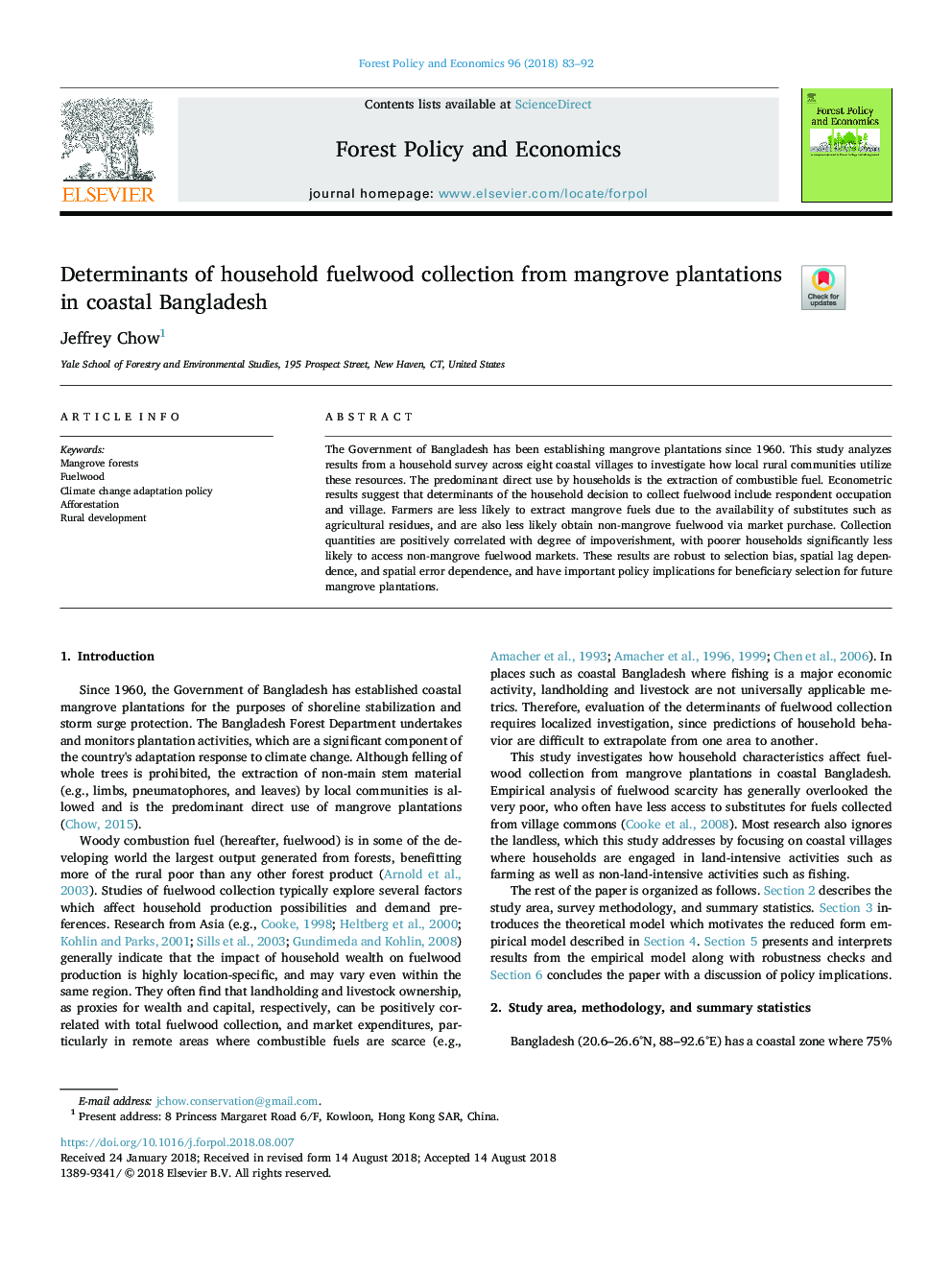| Article ID | Journal | Published Year | Pages | File Type |
|---|---|---|---|---|
| 10126761 | Forest Policy and Economics | 2018 | 10 Pages |
Abstract
The Government of Bangladesh has been establishing mangrove plantations since 1960. This study analyzes results from a household survey across eight coastal villages to investigate how local rural communities utilize these resources. The predominant direct use by households is the extraction of combustible fuel. Econometric results suggest that determinants of the household decision to collect fuelwood include respondent occupation and village. Farmers are less likely to extract mangrove fuels due to the availability of substitutes such as agricultural residues, and are also less likely obtain non-mangrove fuelwood via market purchase. Collection quantities are positively correlated with degree of impoverishment, with poorer households significantly less likely to access non-mangrove fuelwood markets. These results are robust to selection bias, spatial lag dependence, and spatial error dependence, and have important policy implications for beneficiary selection for future mangrove plantations.
Related Topics
Life Sciences
Agricultural and Biological Sciences
Forestry
Authors
Jeffrey Chow,
